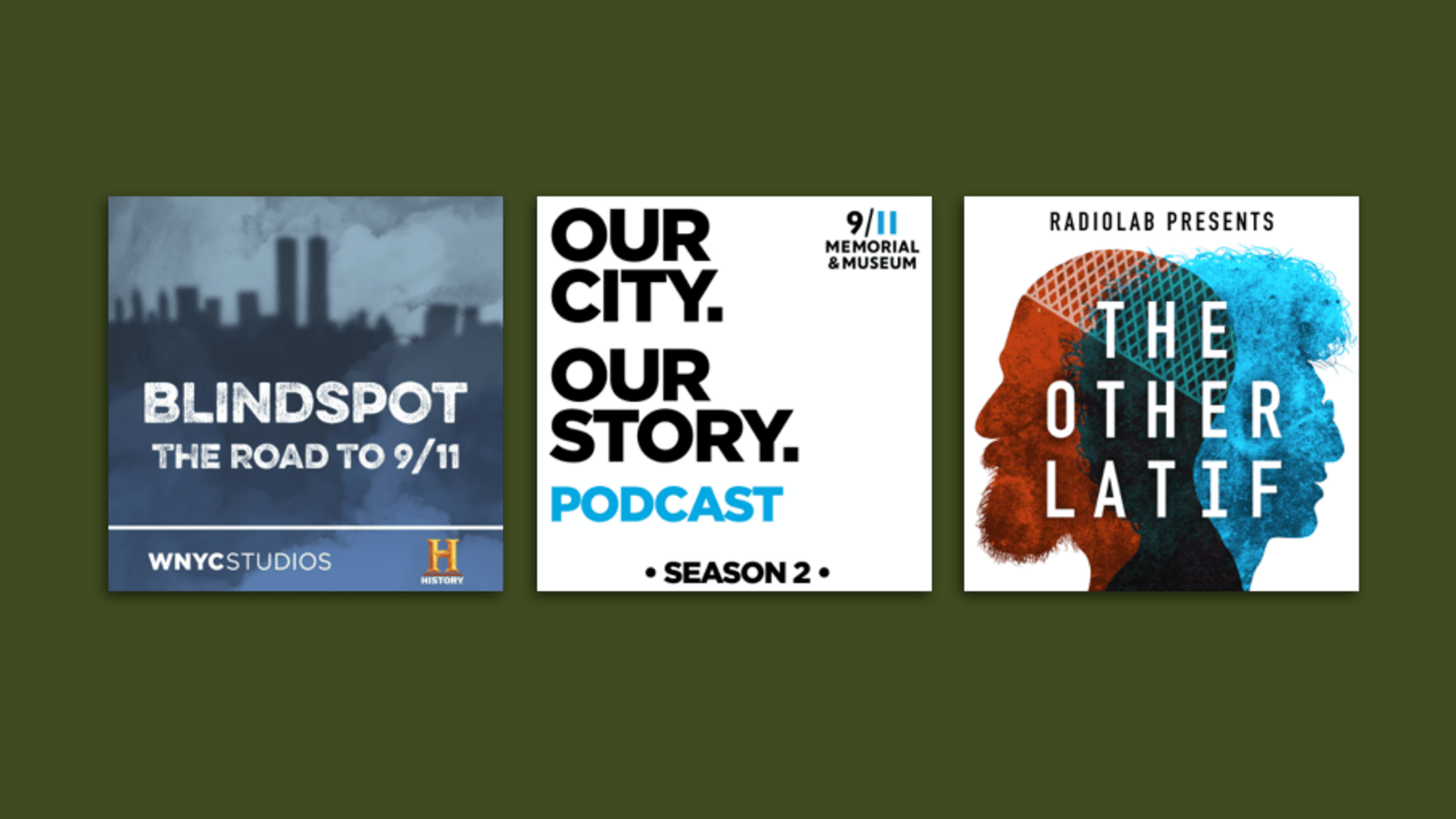Seven Podcasts Worth Listening to About 9/11

With the twentieth anniversary of the September 11, 2001, attacks just over two weeks away, we are recommending sources for learning more about that tragic day and its consequences. This week, we’re recommending podcasts worth listening to.
Our selection rules are simple. First, we picked podcast series and individual podcast episodes that we found informative and accurate. You might think that some of our choices cover well-trod ground. But that probably reveals something about your age. Remember, roughly one out of three Americans were either under ten or not yet born when the September 11, 2001, attacks occurred. So a fair number of us have little or no memory of that unforgettable day. Second, we aren’t including episodes from any of CFR’s three podcasts: The President’s Inbox, The World Next Week, or Why It Matters. We hate to pick among our own. (That said, you can peruse a list of episodes of The President’s Inbox organized by topic here.)
More on:
Here are four podcast series worth listening to:
Blindspot: The Road to 9/11 (WNYC/History Channel). Produced by New York Public Radio station WNYC in collaboration with the History Channel, this series draws on the History Channel’s documentary, Road to 9/11. The eight episodes weave together some five dozen interviews with government officials, academics, journalists, FBI agents, and even people with ties to the terrorists who carried out the attacks. The goal of the series is to show that 9/11 was the culmination of a series of events that began years earlier. Each episode in the series runs for roughly fifty minutes.
Intelligence Matters Presents: Remembering 9/11 (CBS News). In this special series of the Intelligence Matters podcast, host Michael Morell, former acting director of the CIA, interviews guests about where they were and what they witnessed on 9/11. Episodes air weekly. The episodes released so far feature interviews with two former George W. Bush administration officials, Andy Card, who was White House chief of staff on 9/11, and Stephen Hadley, who was deputy national security advisor. Each episode runs about thirty-six minutes.
Our City. Our Story. (9/11 Memorial and Museum). Oral historian Jenny Pachucki hosts this podcast series, which ran for two seasons between 2016 and 2018, and totaled twenty-three episodes. Each episode features an interview with a New Yorker about their 9/11 experience. The interviewees include celebrities like Katie Couric and Robert De Niro, as well as well as less famous guests like journalists, activists, and survivors. Episodes range in length from six minutes to twenty-eight minutes.
The Other Latif (Radiolab). Latif Nasser, the host of the New York Public Radio show Radiolab, hosts The Other Latif. Abdul Latif Nasser–the other Latif–was a detainee at the U.S. military prison at Guantanamo Bay, Cuba. The U.S. government accused the latter Nasser of having trained with al-Qaeda and advised Osama bin Laden. He denied the charges, however, and insisted he was innocent. Over the course of six episodes, Nasser the host sets out to learn how his namesake landed in Guantanamo and whether he belonged there. Last month, more than a year after the final episode of The Other Latif podcast aired and five years after he was cleared to leave “Gitmo,” Nasser became the first Guantanamo detainee to be released by the Biden administration. He spent more than nineteen years at Guantanamo. Episodes range in length from forty-minutes to just over an hour in length.
More on:
Here are three individual podcast episodes worth listening to:
“60 Words,” Radiolab (WNYC). This episode of Radiolab was originally published in 2014. It was updated in 2020 after the drone strike that killed Iranian General Qasem Soleimani. The episode looks at the path the United States followed in the thirteen years after Congress passed and President George W. Bush signed the 2001 Authorization for Use of Military Force (AUMF). The core of that law, which remains on the books, is a single, sixty-word sentence. It has provided the legal basis for much over the U.S. government’s counterterrorist operations over the past two decades. The episode runs for sixty-eight minutes.
“Ten Years In,” This American Life (Chicago Public Media). This 2011 episode features interviews with six people who had appeared on This American Life between 2001 and 2010. Presented as a prologue and then six acts, the episode revisits how 9/11 altered the lives of the interviewees and how their lives had changed since they first appeared on This American Life. The episode runs for sixty minutes.
“The Weight of Dust,” FRONTLINE Dispatch (PBS). FRONTLINE journalist Amy Gaines sheds light on the lasting health effects experienced by 9/11 survivors, likely from their exposure to toxic chemicals at the World Trade Center. The stories she shares includes that of her father, a 9/11 first responder, who was diagnosed with tonsil cancer in 2016. The episode runs for fifty-one minutes.
Next week, we’ll be looking at 9/11 conspiracy theories and providing resources on where to go to debunk them.
Here are the other entries in this series:
*** This article has been archived for your research. The original version from Council on Foreign Relations can be found here ***


